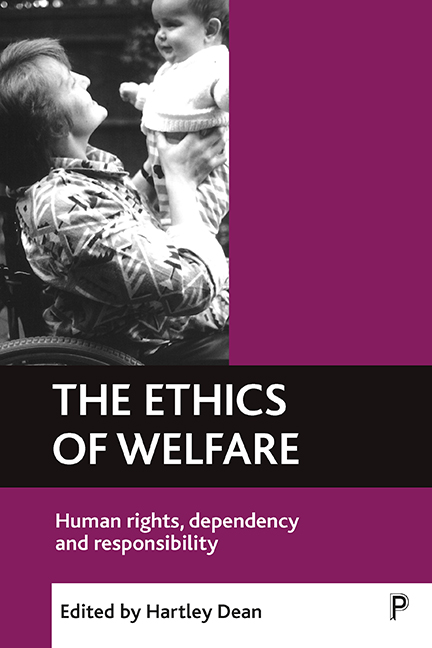four - Popular discourses of dependency, responsibility and rights
Published online by Cambridge University Press: 20 January 2022
Summary
This is the first of the three chapters that make up Part Two of this book, which recounts the principal findings from the ESRC-funded study described in the Introduction. It focuses on what might be defined as ‘popular’ discourses insofar that it is based on in-depth interviews that were conducted with a sample of 49 working-age adults drawn from Dover (seven), London (one), Sheffield (11) and Luton (30). The sample was evenly distributed between men (25) and women (24) and, although it was somewhat skewed towards older participants (30 were aged 40+, compared with only 19 under 40), it included representatives of the full working-age range. The youngest was 19 years of age and the oldest was 65 years of age at the time of the interview. Six members of the sample were from non-white minority ethnic groups (four Asian, one Caribbean and one Middle Eastern). Two thirds of the sample (33) were living with partners and nearly half (22) had dependent children. Eleven respondents regarded themselves as disabled and five reported that another member of their household was disabled. The sample was deliberately selected so as to be evenly distributed between four income bands, the poorest with incomes below £9,000 per annum (12), two intermediate income groups with incomes between £9,000 per annum and £18,000 per annum (12) and £18,001 per annum and £27,000 per annum (13), and the richest with incomes above £27,000 per annum (12). Nine participants were in professional or managerial occupations, 13 were in skilled occupations (manual or non-manual), ten were in part or unskilled occupations and 17 were unemployed or economically inactive.
The interviews sought to explore the participants’ understandings of dependency, responsibility and rights and to locate these understandings in relation to their attitudes to the welfare state.
Dependency
When asked what they thought was meant by the word ‘dependency’, participants responded in a variety of ways. Almost half (23) responded immediately with images of those whom they regarded as dependent and identified stages within the life course – childhood, old age or periods of sickness – when people were necessarily dependent, frail or isolated.
- Type
- Chapter
- Information
- The Ethics of WelfareHuman Rights, Dependency and Responsibility, pp. 69 - 88Publisher: Bristol University PressPrint publication year: 2004



